
Memetic Computing
metrics 2024
Navigating the Future of Computer Science
Introduction
Memetic Computing is a premier academic journal published by SPRINGER HEIDELBERG, dedicated to advancing research in the interdisciplinary domains of computer science and control optimization. With an impact factor that places it in the prestigious Q1 category for both Computer Science and Control and Optimization as of 2023, Memetic Computing stands at the forefront of innovation, offering researchers, professionals, and students a vital platform to explore and disseminate transformative findings in these rapidly evolving fields. With convergence periods specified from 2009 to 2024, the journal aims to illustrate the synergy between algorithmic and natural systems, reflecting current trends and future trajectories within the scope of memetic algorithms. Its robust Scopus rankings signal its significance as an influential resource within the global academic community. This journal is invaluable for those looking to enhance their understanding and engage with cutting-edge research that blends computational theory with practical applications.
Metrics 2024
 0.94
0.94 3.30
3.30 3.50
3.50 40
40Metrics History
Rank 2024
Scopus
IF (Web Of Science)
JCI (Web Of Science)
Quartile History
Similar Journals
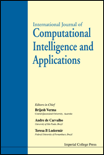
International Journal of Computational Intelligence and Applications
Transforming Ideas into Applications with Computational IntelligenceThe International Journal of Computational Intelligence and Applications, published by WORLD SCIENTIFIC PUBL CO PTE LTD, is a prominent journal dedicated to advancing the field of computational intelligence and its applications, with a keen focus on innovative methodologies and theoretical frameworks. With an impact factor reflective of its growing influence, the journal is classified in Q3 for Computer Science Applications and holds Q4 standings in both Software and Theoretical Computer Science as of 2023, showcasing its critical niche within these disciplines. Established in 2008 and converging through 2024, this journal serves as a vital resource for researchers, professionals, and students in Singapore and beyond, promoting scholarly communication and collaboration. Although it is a non-open access journal, it still provides a wealth of information that is readily accessible through institutional subscriptions and library resources. Researchers contributing to the journal benefit from its wide reach and dedicated readership, making it a substantial platform to disseminate groundbreaking research and insights.
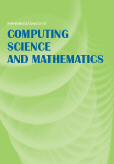
International Journal of Computing Science and Mathematics
Empowering Research in Computing Science and MathematicsThe International Journal of Computing Science and Mathematics, published by INDERSCIENCE ENTERPRISES LTD, is a pivotal platform for the dissemination of cutting-edge research in the intertwined disciplines of computing science and mathematics. With an ISSN of 1752-5055 and an E-ISSN of 1752-5063, the journal primarily serves the academic community engaged in applied mathematics, computational mathematics, theoretical computer science, and more, making significant contributions that resonate across various fields of technology and science. While the journal is currently categorized in the Q4 quartile for multiple related fields, including Applied Mathematics and Computational Theory, it continues to strive towards advancing the knowledge and practice within these areas. Spanning years from 2007 to 2010 and again from 2012 to 2024, the journal seeks to publish high-quality, peer-reviewed articles that not only address theoretical advancements but also explore practical applications of computing science in mathematical contexts, thereby fostering collaboration among researchers, professionals, and students alike. Please note that this journal is not available as Open Access, thus ensuring a curated content selection intended for dedicated research communities.

Multiagent and Grid Systems
Innovating Solutions Through Multiagent SynergyMultiagent and Grid Systems is a cutting-edge academic journal published by IOS PRESS that delves into the dynamic realms of computer science, particularly focusing on multi-agent systems and grid computing. Since its inception in 2005, the journal has provided a vital platform for researchers and practitioners in the field, showcasing innovative studies that explore the integration and application of multiagent technology within grid systems. With an impact factor that marks it as a noteworthy contributor, Multiagent and Grid Systems currently holds a Q3 ranking in the Computer Science (Miscellaneous) category, reflecting its contributions to advancing knowledge and practice in this interdisciplinary domain. The journal aims to disseminate high-quality research and foster collaboration among scholars and industry professionals, encouraging novel approaches and solutions to complex computational challenges. Although it is not an open-access journal, it remains an essential resource for anyone looking to stay abreast of the latest developments in this rapidly evolving field.

International Journal of Mathematics and Computer Science
Pioneering Research in Mathematics and Computer ScienceThe International Journal of Mathematics and Computer Science (ISSN: 1814-0424, E-ISSN: 1814-0432), published by Lebanese University, serves as a vital platform for disseminating innovative research and advancements in the fields of mathematics and computer science. With a compelling range of topics including Algebra, Applied Mathematics, Computational Mathematics, and Statistical Analysis, this journal caters to a broad audience of researchers, professionals, and students. Spanning the years from 2017 to 2025, it has established a presence in several key quartiles, including Q3 rankings in Applied Mathematics and Computational Mathematics, and a Q4 ranking in Algebra and Number Theory. While currently not an open-access journal, it provides valuable insights through its rigorous peer-reviewed process, enhancing its relevance in both theoretical and applied domains. Furthermore, its presence in Scopus rankings reflects its commitment to quality, making it an essential resource for anyone looking to explore the intersection of mathematics and computer science.

Evolving Systems
Advancing the Frontier of System EvolutionEvolving Systems, an esteemed journal published by Springer Heidelberg, focuses on advancing the interdisciplinary field of evolving systems, encompassing areas such as computer science applications, control and optimization, control and systems engineering, and modeling and simulation. Since its inception in 2010, the journal has made significant contributions to the academic community, currently holding a commendable Q2 ranking across multiple categories for the year 2023. With an impactful focus on the dynamic behaviors of systems and their adaptive methodologies, Evolving Systems serves as a crucial platform for researchers, professionals, and students aiming to explore and expand the boundaries of system evolution. Despite being a subscription-based journal, it remains committed to fostering high-quality research dissemination and encourages submissions that push the envelope of knowledge in this rapidly developing field. The journal employs a rigorous peer-review process, ensuring the publication of cutting-edge research that meets the highest scholarly standards.
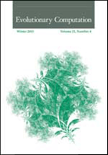
EVOLUTIONARY COMPUTATION
Shaping the Future of Algorithms with Evolutionary InsightsEVOLUTIONARY COMPUTATION, published by MIT PRESS, is a premier journal in the field of Computational Mathematics, holding a distinguished Q1 ranking in the 2023 category and an impressive 87th percentile in Scopus rankings for Computational Mathematics. Since its inception in 1996, the journal has served as a critical platform for presenting cutting-edge research and development in the applications and theory of evolutionary algorithms. Recognized for its rigorous peer-review process, EVOLUTIONARY COMPUTATION invites contributions that advance the understanding of algorithmic strategies inspired by natural evolution, thereby playing a significant role in the scientific community. The journal is pivotal for researchers, professionals, and students aiming to explore innovative methodologies and applications of evolutionary techniques in diverse fields. With a focus on fostering collaboration and knowledge dissemination, this journal not only serves the academic community but also impacts industry practices, encouraging the integration of these evolutionary approaches into real-world problems.
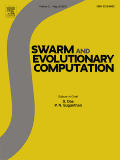
Swarm and Evolutionary Computation
Advancing Algorithms for a Smarter Future.Swarm and Evolutionary Computation is an esteemed academic journal published by Elsevier, dedicated to the exploration of innovative algorithms and methodologies derived from principles of swarm intelligence and evolutionary computation. With its ISSN 2210-6502 and E-ISSN 2210-6510, this journal has earned a prominent position in the field, evidenced by its Q1 category rankings in both Computer Science and Mathematics for 2023, reflecting its high impact and relevance. The journal's Scopus rankings further underscore its significance, placing it in the top percentile of mathematics and computer science journals. As an open-access platform, it aims to disseminate groundbreaking research that addresses real-world challenges and fosters interdisciplinary collaboration. Researchers, professionals, and students are encouraged to engage with this journal to contribute to and benefit from the ongoing advancements in swarm intelligence and evolutionary methods, which have become instrumental in solving complex optimization problems across diverse fields.
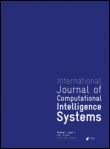
International Journal of Computational Intelligence Systems
Exploring the Frontiers of Computational ResearchInternational Journal of Computational Intelligence Systems, published by SPRINGERNATURE, is a leading open-access journal that has been at the forefront of research in the field of computational intelligence since 2008. With an ISSN of 1875-6891 and an E-ISSN of 1875-6883, this journal occupies a prominent place in the academic landscape, achieving impressive rankings in its categories: Q2 in both Computational Mathematics and Computer Science (miscellaneous), reflecting its significance and relevance to researchers, professionals, and students. Based in Switzerland, the journal is committed to disseminating high-quality research and fostering innovation in computational methodologies, algorithms, and applications. Its strong impact factor and Scopus rankings—31/189 in Computational Mathematics and 53/232 in General Computer Science—underscore its critical role in advancing knowledge in these interdisciplinary fields. As an open-access journal, it provides unparalleled accessibility to cutting-edge research, supporting the global community in staying at the forefront of computational intelligence advancements.

Genetic Programming and Evolvable Machines
Transforming Ideas into Intelligent SolutionsGenetic Programming and Evolvable Machines, published by SPRINGER, is a leading journal dedicated to the fields of genetic algorithms, evolutionary computation, and machine learning. With an ISSN of 1389-2576 and an E-ISSN of 1573-7632, this esteemed journal encompasses original research articles, reviews, and applications that explore the intricate relationships between intelligent systems and evolutionary processes. As of 2023, it holds a notable Q2 ranking in various categories including Computer Science Applications and Hardware and Architecture, reflecting its significant impact in advancing knowledge and methodologies within these domains. The journal's metrics, including a top rank of #31/130 in Theoretical Computer Science, signify its relevance and contribution to the broader academic community. Though not open access, papers published in the journal continue to serve as critical resources for both researchers and practitioners, promoting innovative methodologies and solutions. Covering a broad scope with a convergence extending from 2003 to 2024, this journal remains a pivotal platform for sharing cutting-edge research that shapes the future of artificial intelligence and computational theory.

Evolutionary Intelligence
Innovative Research Driving the Future of Artificial IntelligenceEvolutionary Intelligence is a prestigious journal published by Springer Heidelberg, dedicated to the interdisciplinary study of Artificial Intelligence, Cognitive Neuroscience, Computer Vision, and Mathematics. With its ISSN 1864-5909 and E-ISSN 1864-5917, the journal has established a significant presence in the academic community since its inception in 2008. Spanning a diverse range of topics relevant to both theoretical and empirical research, it has achieved impressive rankings, including Q3 in Artificial Intelligence and Cognitive Neuroscience, and Q2 in Computer Vision and Pattern Recognition as of 2023. With a strong Scopus ranking that places it in the top quartiles of its field, Evolutionary Intelligence serves as an essential platform for scholars and practitioners seeking to advance knowledge and foster innovation in these dynamic fields. Researchers, professionals, and students alike will find invaluable insights and cutting-edge findings that challenge existing paradigms and inspire future explorations in intelligence-related studies.